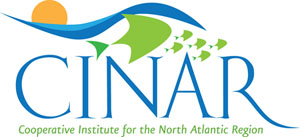As clearly shown in our major story, the climate is changing and the changes are having an effect on the Gulf of Maine, as they are throughout the world. Fortunately, we can also see that efforts are taking place all around the Gulf to mitigate or prevent the worst effects of the changes.
Changes are coming to the Gulf of Maine Times, as well. In the Winter/Spring 2007 edition of the Times, editor Lori Villagra informed the readership that the paper copy of the Times would be reduced from four issues to three per year, and encouraged readers to subscribe on line.
This publication year, the Times was reduced from three to two paper issues as grant money dried up. Certainly, the Times is not alone. Newspapers around the country are closing down because costs are up and advertising dollars are down. The predicament of newspapers has been worsening for some time as more, especially younger, readers sought their news on the Web, not on paper, but the financial worldwide free-fall has accelerated the problem.
Now, the Times is facing a similar problem. Since the Times does not accept advertising, the paper has no source of revenue except the shrinking grant money or the generous donations of its readers and friends.
Unless an unexpected solution to the financial problem is found soon, this may be the last issue of the Gulf of Maine Times, at least on paper. Friends and readers who have not contributed to the support of the Times are urged to do so while there is time left to save it. We may be able to continue to publish the Times, at least on the Web, if there’s enough support.
Meanwhile, we hope you will enjoy this issue of the Times. We wanted to provide readers with a snapshot of the challenges climate change poses to the Gulf and some of the programs designed to meet and overcome those challenges. Thanks to Anne Hayden, we have an overview of the situation. Anne was a policy development specialist at the Maine State Planning Office who co-wrote the seminal work, The Gulf of Maine: Sustaining Our Common Heritage in 1989 at the outset of the Gulf of Maine program.
In the last issue, the main story on alternative energy was written by Melissa Waterman, who was staff to the Gulf of Maine program at the State Planning Office from the program’s start in 1989 through 1994. She contributed this issue’s story on the novel and effective efforts to control solid waste in Annapolis, Nova Scotia.
Of course, the work of two other fine reporters represented here are familiar to readers by now. Assistant editor Catherine Colletti and Rebecca Zeiber, both of New Hampshire, have contributed many fine pieces to the Times and have done so again for this issue with stories on fluvial erosion, derelict fishing gear and tracking small lobsters.
Book reviewer Lee Bumsted from South Portland, Maine, is another valued and long-time contributor whose critique of The Unnatural History of the Sea in this issue illuminates another perspective on environmental changes.
So please enjoy the paper, please consider supporting the Times financially, and if you don’t see us on paper again, we hope you will see us on the web.
Print


















